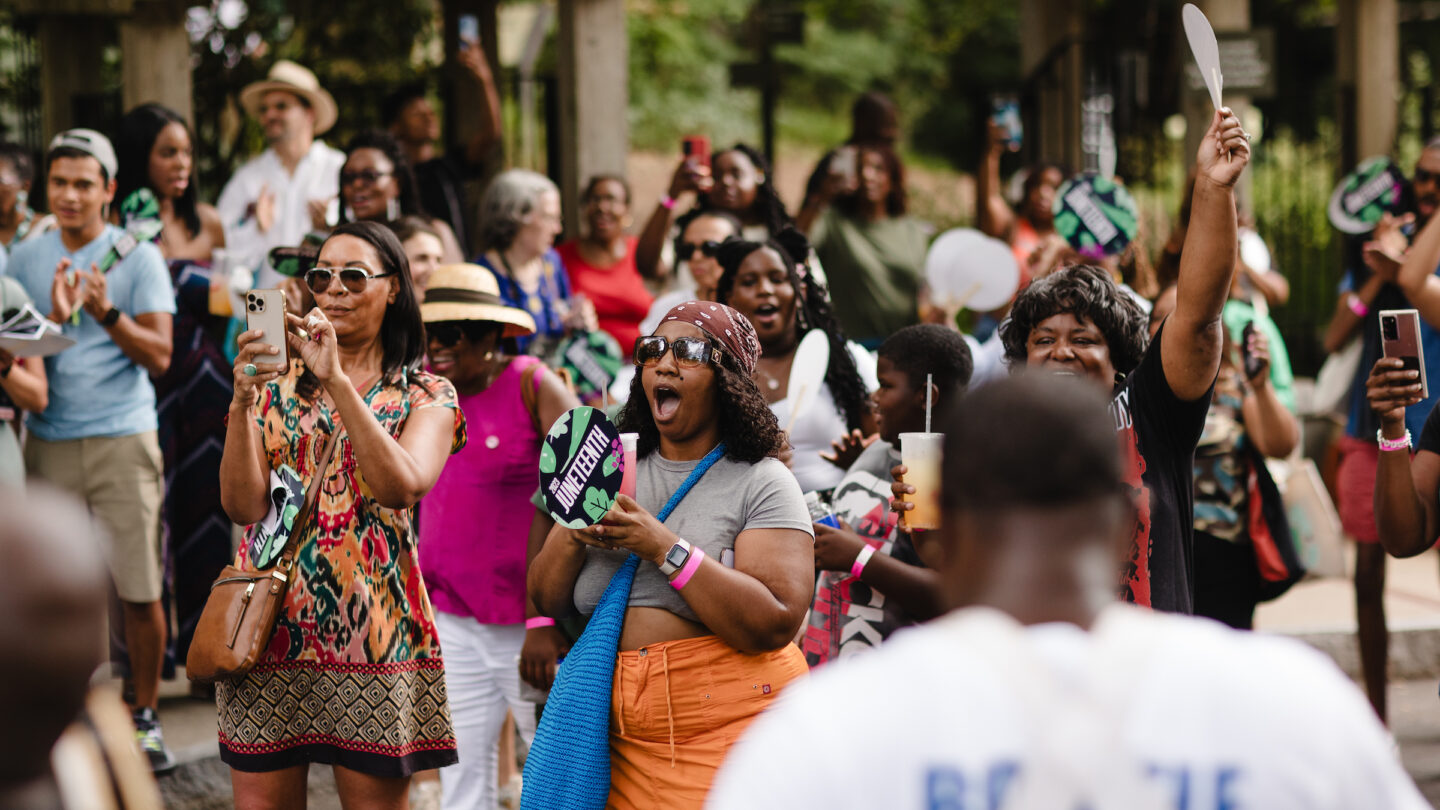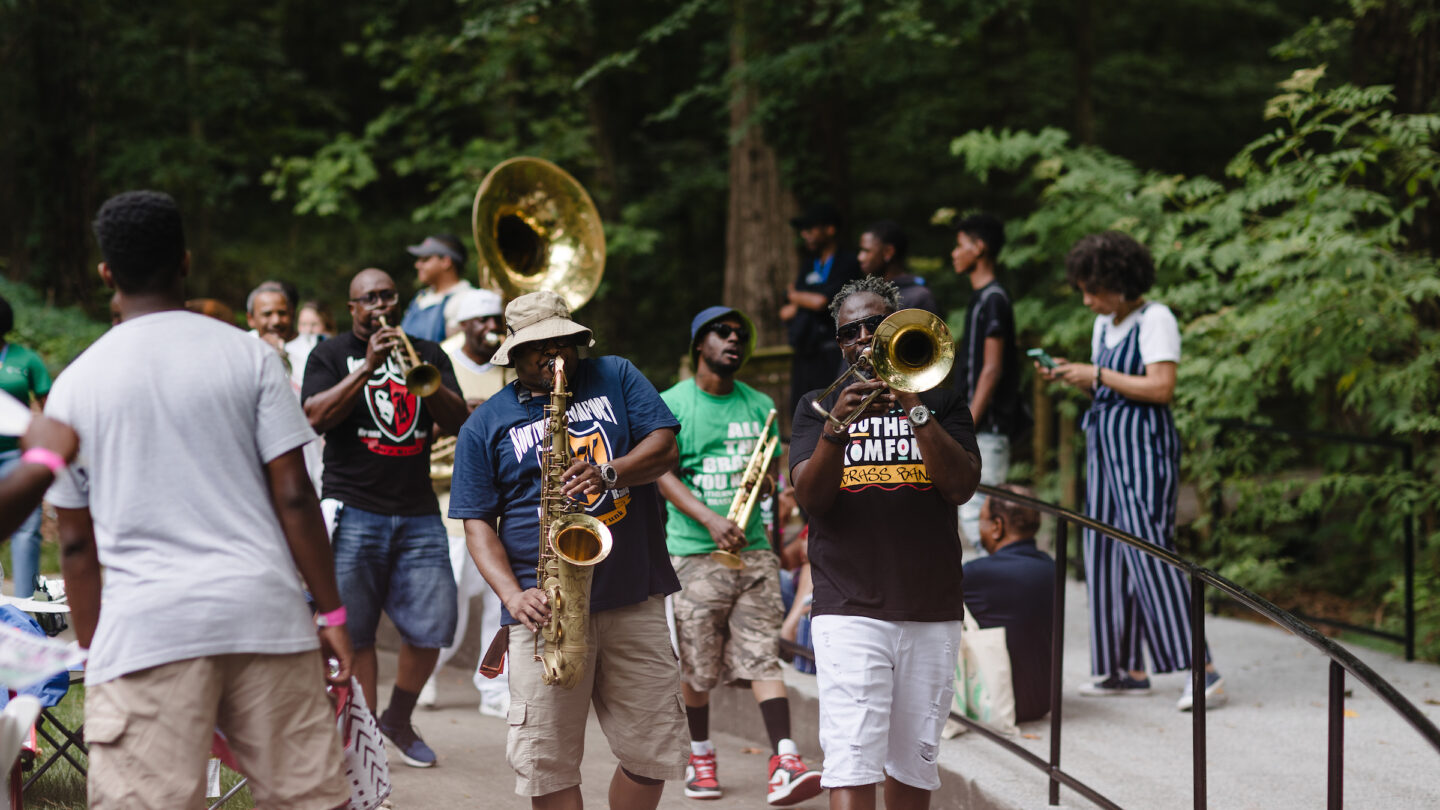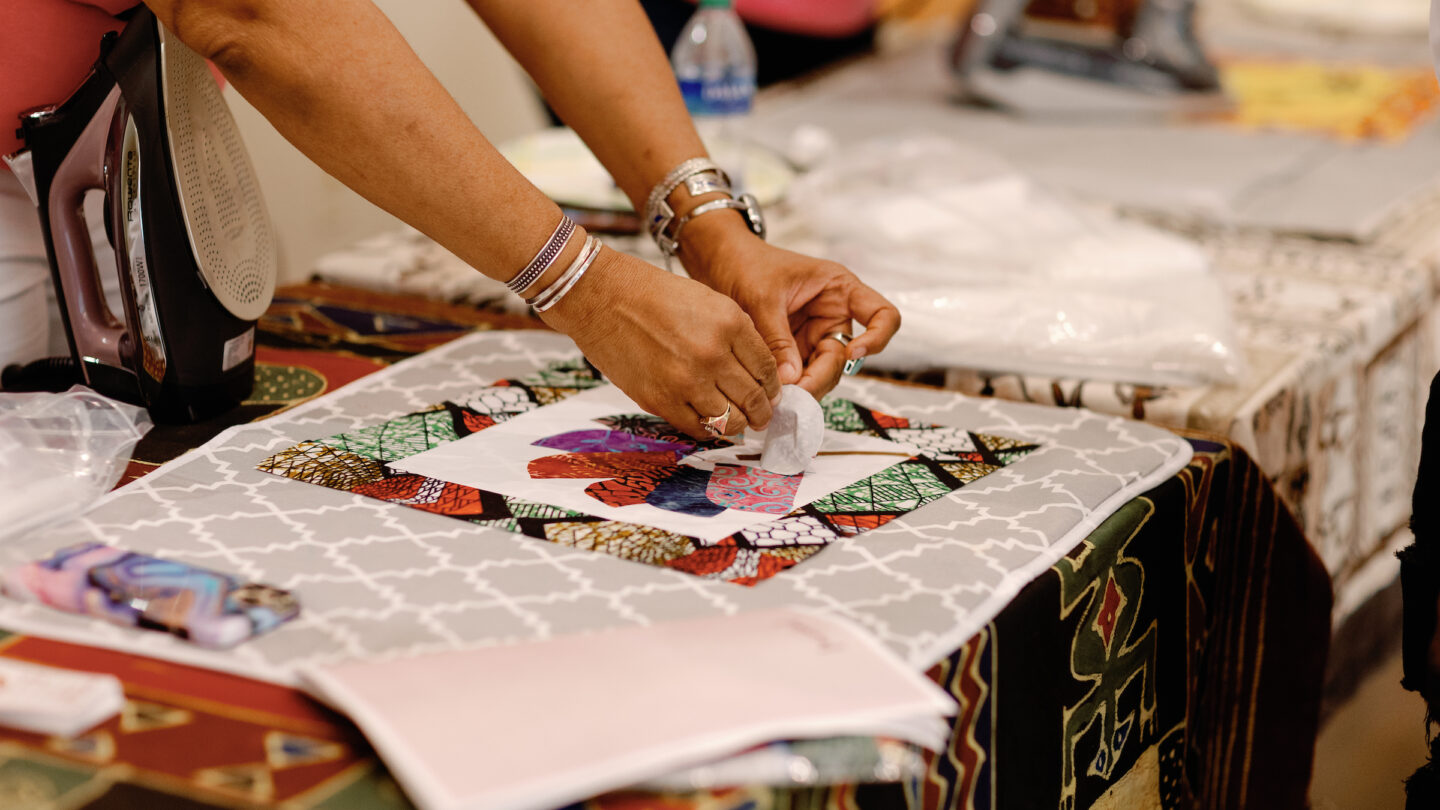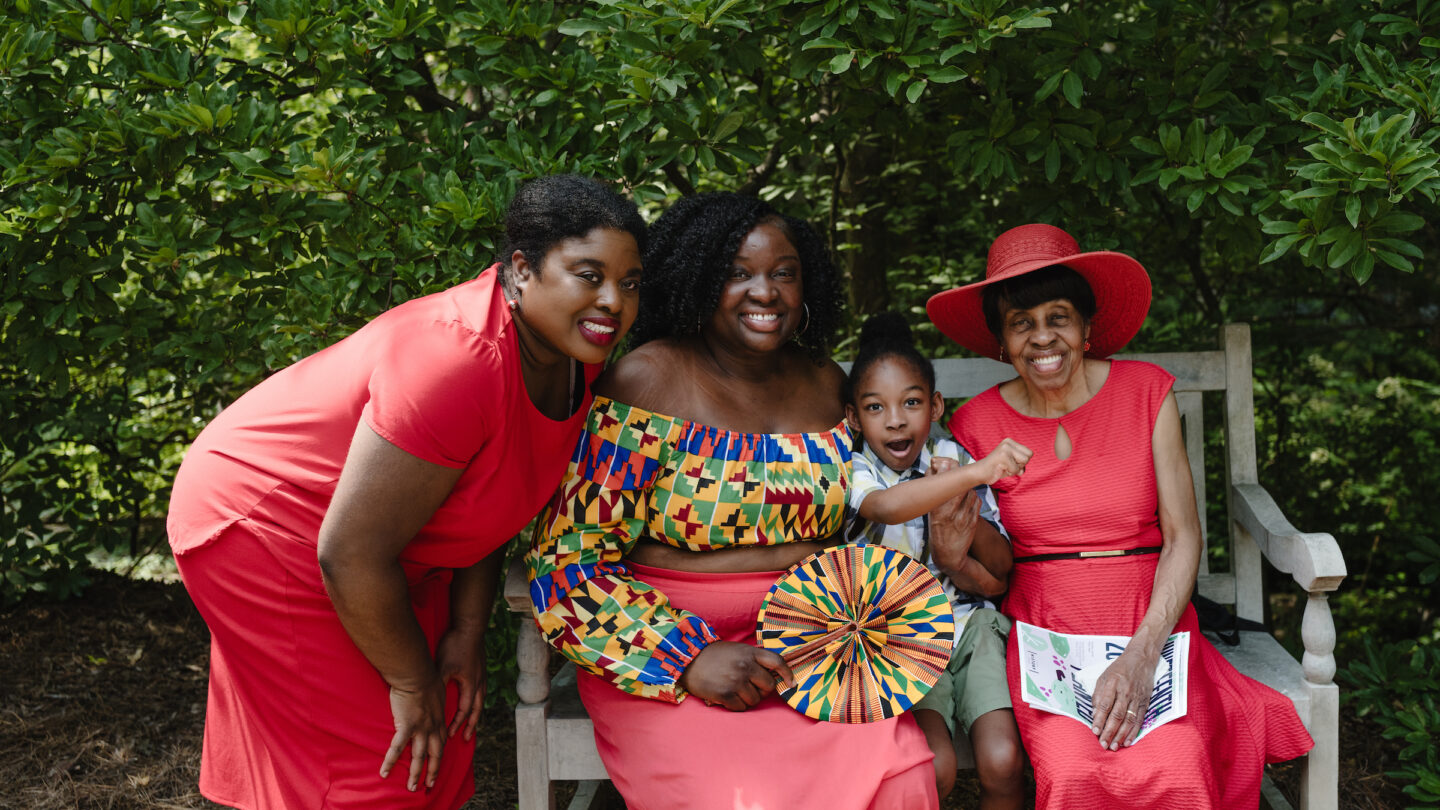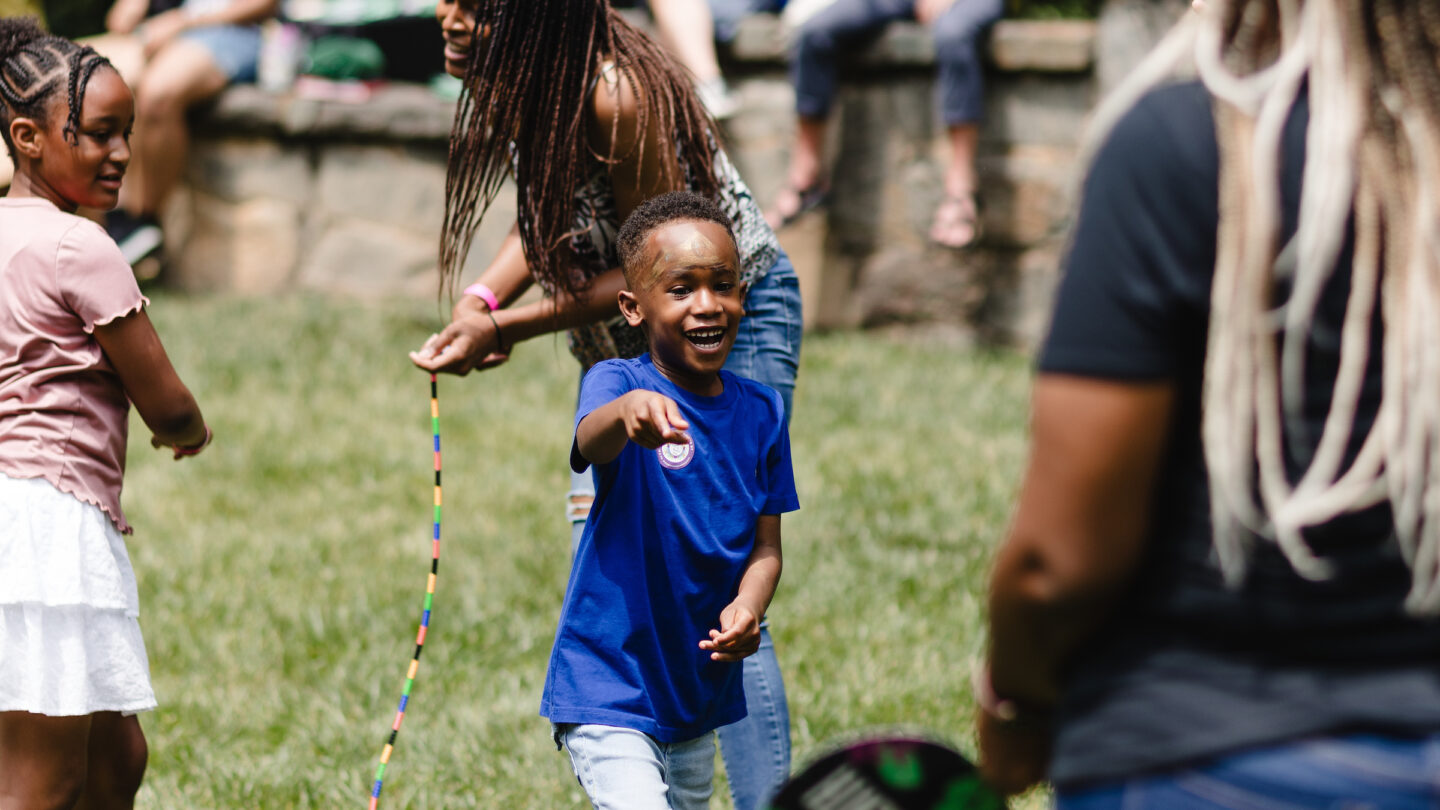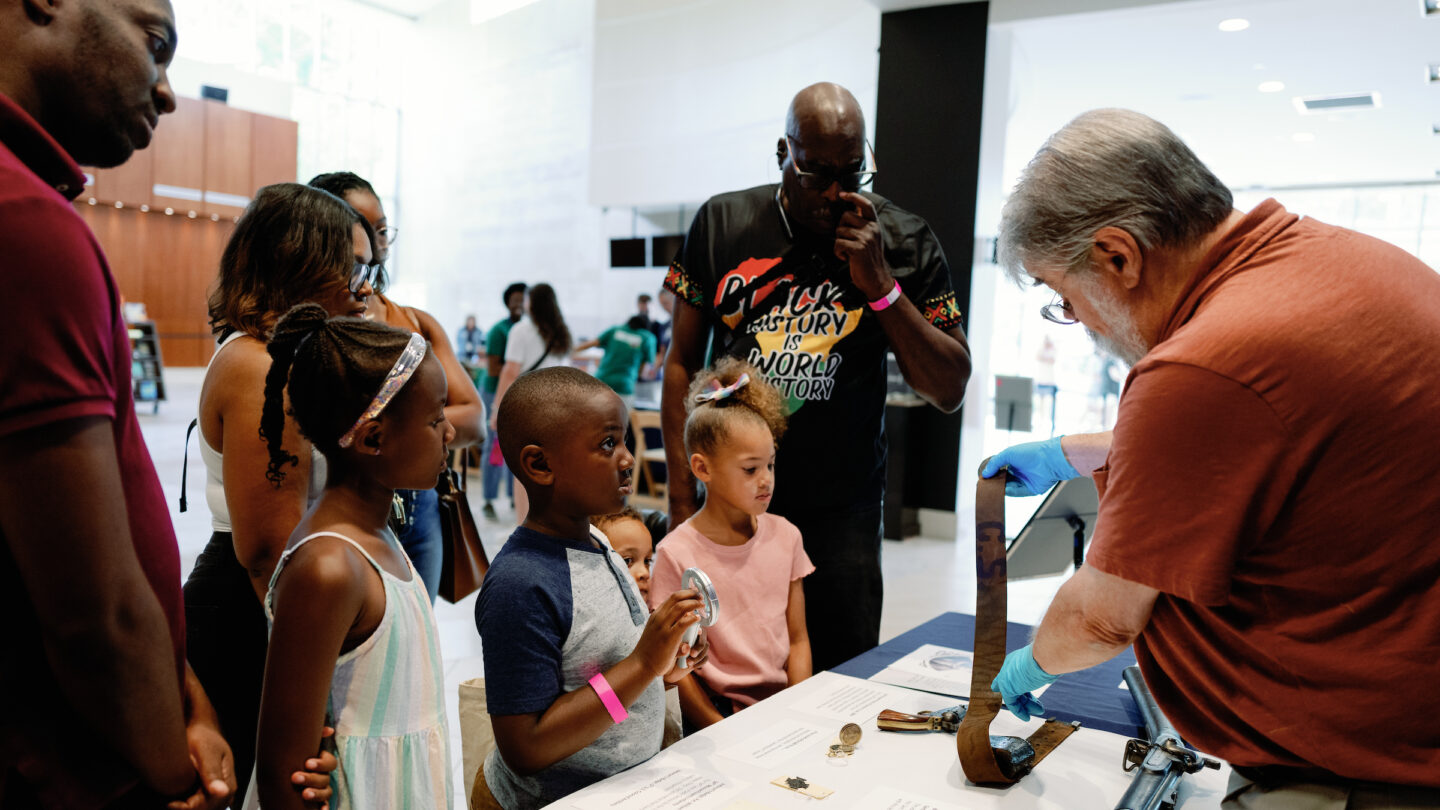Juneteenth is a celebration marking the end of enslavement in the United States.
On June 19, 1865, a group of Union troops stopped in Galveston, Texas, to inform enslaved people that the Civil War was over, the Confederacy was defeated, and enslaved people in Texas were free. Though Abraham Lincoln issued the Emancipation Proclamation on January 1, 1863, many slaveholders refused to comply. A full two and a half years after the Emancipation Proclamation and two months after Union troops seized Richmond, the capital of the Confederate States of America, the last enslaved African Americans in Texas were declared free people. That momentous date in 1865 was proclaimed Juneteenth and has been celebrated annually since then.
Today, Juneteenth serves as a holiday to reflect on our nation’s history, commemorate emancipation, and look towards the future impact of Black culture and community. In 2021, President Joe Biden signed the Juneteenth National Independence Day Act into law, making Juneteenth a federal holiday.
Juneteenth is part of Atlanta History Center’s celebration of the Civic Season, a nationwide initiative encouraging historically-informed civic participation through a two-week activation between Juneteenth and July 4th.
Learn MoreAmerican barbecue's origins are deeply rooted in Black and Indigenous American culinary traditions. Indigenous peoples used open fire pits for cooking for over 10,000 years, and the term "barbecue" evolved from the Taino and West African words "brabacot" and "babbake."
Learn more2023. Look Back.
Related. Stories.
-
The Lost Friends Database compiles ads from the Southwestern Christian Advocate newspaper, where African Americans searched for family members separated by the domestic slave trade. Including ads referencing Atlanta, this database highlights the city’s role in this period.
-
Explore the rich heritage of African American cuisine, from the enduring traditions of West African dishes to the culinary innovations of enslaved chefs like James Hemings. Learn how iconic foods like cala, macaroni and cheese, and bean pie symbolize resilience, cultural preservation, and the profound impact of Black chefs on American culinary history, celebrated through generations.
-
Juneteenth is a celebration of the end to slavery in the U.S. Lincoln issued the Emancipation Proclamation on Jan. 1, 1863, but few people were immediately freed.
-
Though the story of the Atlanta Crackers is well-known, for years, the story of the Atlanta Black Crackers was largely untold.
-
For more than fifty years, Ethel Mae Matthews worked tirelessly for greater welfare rights for Atlanta’s poor and disabled.
-
For more than 150 years, unwavering young activists have taken up the torch and blazed their own trail through history.
-
In 1962, Mayor Ivan Allen, Jr. ordered the construction of a barricade served to sever the main line connecting the white and Black sections of the Cascade Heights neighborhood.
-
Black soldiers have served this country since the Revolutionary War and their stories are vital in creating a more complete, more accurate picture of America’s past.
-
In August 2020, we commemorate the passage of the Nineteenth Amendment which guaranteed American women the right to vote. However, this was not an inclusive victory.
-
After engaging in over 60 years of activism and service to the Atlanta community, prominent Civil Rights leader and Congressman John Lewis has died.
Browse a sample of photographs reflecting the rich stories of Atlanta’s historically Black colleges and universities, the Civil Rights Movement, and those of African American educators, entertainers, and athletes.
View nowAtlanta History Center is home to one of the nation’s most comprehensive collections of Civil War memorabilia including a growing number of rare USCT objects. Explore highlights of the collection through a series of videos.
Watch nowDavid Drake was an enslaved potter in South Carolina. His jars are unique not only for their craftsmanship, but because Drake often etched lines of poetry into the clay while it was still wet.
Learn moreWe invite you to meet Black Atlantans who made history as educators, artists, legislators, soldiers, and more. This virtual tour offers the full content of the exhibition at Atlanta History Center, and was created by New-York Historical Society.
Explore moreExperience Sweet Auburn
Celebrate Juneteenth and African American resilience and ingenuity by taking a walking tour of “Sweet Auburn,” a neighborhood that John Wesley Dobbs once called the “richest Negro street in the world.” While at the time, Dobbs was referring to the financial influence of the area, today, as a birthplace of the modern Civil Rights movement, the area is replete with historical significance. This tour was co-curated by Historic Atlanta and Atlanta History Center in 2021.
Family. Focused.
Juneteenth offers families an opportunity to talk about freedom and the experiences of African-Americans in the United States—and reading is a great way to explore these topics.
Educational. Activities.
Super Spies uses hand-drawn illustrations, historical photographs, and fantastic storytelling to explore the untold history of Harriet Tubman, Elizabeth Van Lew, and Mary Bowser during the American Civil War.
-
Become a spy just like Harriet Tubman, Elizabeth Van Lew, and Mary Bowser using this cypher to decode the secret message!
-
Explore some of the major battles the United States Colored Troops were engaged in during the American Civil War with our interactive map
-
Discover more history as you explore the 127th United States Colored Troops flag and learn more about the artist behind the banner with this interactive artifact exploration!
Enslaved people in the United States resisted the institution of slavery and asserted their humanity and their personhood in many different ways. From running away, organizing uprisings and directly fighting back, as well as clinging to and sharing African traditions which were at constant risk of erasure. One of the many forms of resistance was joining the United States' cause during the Civil War and serving the cause as spies, nurses, and soldiers.
We are excited to bring to you three such stories of Black self-liberation during the American Civil War. History comes to life in these unique lessons created by our Education team in 2020. From brave covert women spies embedded in the Confederacy to the courageous men who fought in the United States Colored Troops—there is sure to be something for everyone in the family to explore.
Lift Every Voice. Playlist.
Clap your hands, stomp your feet, and lift your voice in celebration of triumph, emancipation, and history with these inspirational tunes.
Genealogy. Presentation.
Emma Davis-Hamilton discusses the Freedmen's Bureau in this pre-recorded genealogy presentation. The records of the Freedmen’s Bureau are a rich resource for documenting African American life in the post-Civil War and Reconstruction eras.
Explore. More.
-
Atlanta History Center is using our resources to explore the history of the components that make a healthy democratic system, including methods of civic engagement, widespread and informed voter participation, civil rights, and community leadership.
-
Hundreds of history and civics organizations are coming together to build something together: Made By Us, an initiative to inspire, inform and empower Millennials and Gen Z as they shape our country’s future.
-
Honoring the life and legacy of Atlanta’s most well-known civil rights leader.


